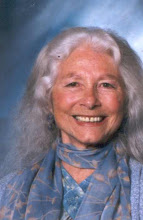| Iconic photo at Kent State, May 1970 |
He offered us the house, but Lynn didn’t want to buy it unless Bob fixed all the problems. I couldn’t envision going into debt when we were verging on breaking up anyway. So, he went ahead and listed it. For weeks we endured buyers traipsing through while the agent explained that, no, there was no hole in the floor underneath the cast-iron man-hole cover and base, grunting, as he shoved it aside and back to prove it. Lynn and Jim Hester had lugged this "artifact" home from a street reconstruction site one night after the bars closed. They'd rolled it into the middle of the front room and set it up. Lynn draped a throw rug, designed like the sun, over it. At our parties, friends jumped on top and danced.
Bob got a buyer, and I got a new guy, R-, a longshoreman and merchant seaman, whom I met through a friend from North Beach. One day, I came home from work- and the kids from school- to find an eviction notice nailed to the front door. We had to be out before the month was up. Lynn bought a motor home and took off, leaving us his dog, Ralph. While adjusting to my new guy and job, I looked for a house after work and on Sundays. I found one on Beacon Street in Diamond Heights, not too far from Eureka Valley, so the kids didn't have to change schools. We had a view of downtown, the bay, the Bay Bridge- gorgeous scene at sundown with the sun's reflection glinting reddish-gold from windows on the East Bay hills; and at night, the lights on Market Street cut a brilliant white, diagonal swath from Twin Peaks to the Ferry Building. I still rode my bike to work, sailng down the hills to Market Street into the financial district. Coming home wasn’t as much fun.
 |
| View from Diamond Heights looking East,except the Transamerica Building was still being built. |
On my first day at one of these short-lived jobs, I was shown a desk and a phone and that was it. Somehow, my big, beefy boss, who, unlike most agency men who could afford high quality clothes, favored dull, grey, ill-fitting suits. He walked around with his nose in the air, expected me to figure everything out on my own. He never looked at me when I asked him questions, gave me vague answers, and was rarely in his office. I didn’t know who my clients were, what insurance companies we had contracts with- anything. The files were a mess and none of my cliquish, co-workers would talk to me. It was a set up. One day, on a rare occasion when my boss was in his office, I looked up from my desk through the partly opened door and spotted R- . Working on the docks before the advent of container ships in the Port of SF in 1969, he had to shout to be heard. He carried this trait into his personal life, modulating his tone only slightly.
I went to him, took his arm, pulled him into the corridor, and tried to explain that the conservative insurance industry didn't like its employees having personal visits. This rule had been emphasized to me, as a new hire. R- said next time he'd call first. I told him we were not allowed to make or receive personal phone calls, either. (You considered it an honor and a perk when you got your own phone.) He refused to understand; miffed, he finally left. I went to the bathroom, threw cold water on my face, took a few deep breaths, and went back to work. When I got home that night he confronted me with the incident. He still didn't get it. His mother worked for the City, he said, and he’d pop in to see her several times a week, what’s the big deal? A few days later, my inattentive boss gave me the “it’s not working out” line. I wondered if R's visit had something to do with it.
 |
| Market Street at Third |
“Dina” and others coached me about my clients; explained how to deal with insurance company special agents; and office protocol. J- the president, looked like Jimmy Stewart. Dina catered to his every whim. He was in his mid-forties, dressed in Brooks Bros ivy-league suits, suspenders, and button-down striped shirts with white collars, and pencil-thin ties. The vice president, M- was about 30, dark and swarthy, with bushy, black eyebrows and receding hairline. In dress, he was a clone of his boss. I told M- that I rode a ten-speed to work and asked him if I could bring it into the office because I’d had too many stolen when I locked them up on the street. No, I couldn’t, he said, but he arranged for me to use the freight elevator in front of the building to take it down to the basement. An old, white haired man reluctantly stopped wrangling boxes of supplies and equipment, and guided me to a cramped, dark storage room where I could lock my bike. Great, I thought. I could hardly see and the overhead light didn't work.
I was beginning to feel that commuting by bike would jeopardize my chances for a promotion. As a woman, it was hard enough to get recognition, a raise, and a title, let alone have riding a bike to work be a factor. It came down to what I loved the most: the job or riding my bike. That day, K- a helpful co-worker, who was married to a Filipino, brought in home-made dishes to share. K- offered M- some chicken adobo. He thanked her, said he’d just eaten, and left.
















